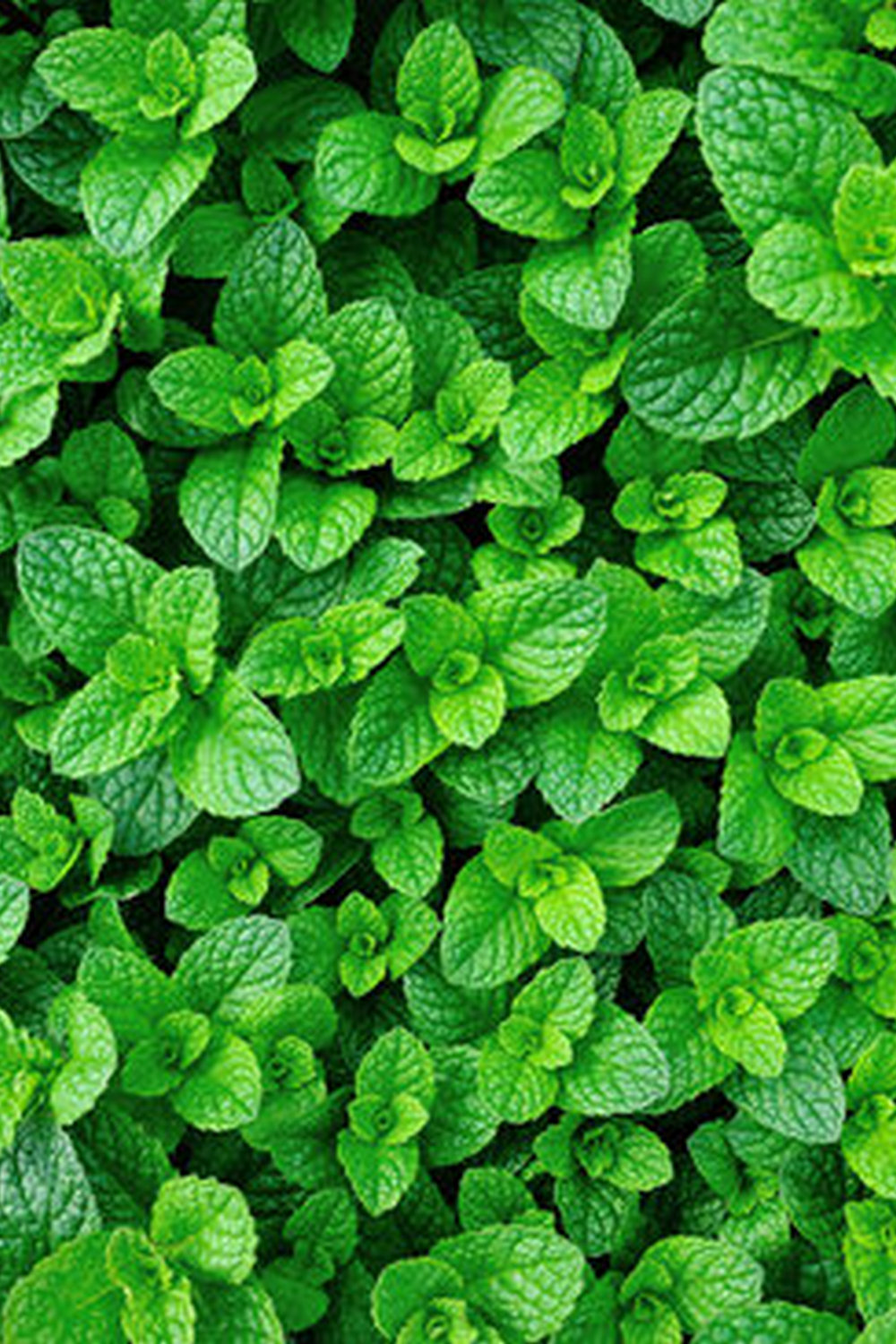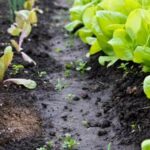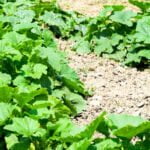Is hardwood mulch good for vegetable gardens? Mulch plays a crucial role in the health and productivity of vegetable gardens, and hardwood mulch is a popular choice for many gardeners.
In this article, we will explore the benefits of using hardwood mulch in vegetable gardens, its impact on soil health and fertility, its role in weed suppression and moisture retention, as well as its ability to prevent soil erosion and protect plant roots. We will also discuss best practices for applying and maintaining hardwood mulch, address common misconceptions and concerns, and share case studies of successful vegetable gardens using hardwood mulch.
Hardwood mulch is a popular choice for vegetable gardens due to its numerous benefits. It helps to regulate soil temperature, retain moisture, suppress weeds, and improve overall soil structure. Additionally, it provides an attractive appearance to the garden while promoting plant growth and health. Understanding the importance of mulch in vegetable gardens can help gardeners make informed decisions about which type of mulch to use.
In addition to discussing the benefits of hardwood mulch, we will also address common misconceptions and concerns about its use in vegetable gardens. By addressing these issues, we aim to provide a comprehensive understanding of whether hardwood mulch is a good choice for your vegetable garden. Furthermore, we will share case studies and success stories from other gardeners who have seen positive results from using hardwood mulch in their own vegetable gardens.
What Is Hardwood Mulch and Its Benefits for Vegetable Gardens
Hardwood mulch is made from the bark, twigs, and leaves of hardwood trees such as oak, maple, and beech. It is a popular choice for vegetable gardens due to its numerous benefits. Here are some key advantages of using hardwood mulch in your vegetable garden:
- Improves soil structure: Hardwood mulch gradually decomposes and adds organic matter to the soil, improving its structure and fertility.
- Enhances moisture retention: The layer of hardwood mulch on the soil’s surface helps retain moisture, reducing the frequency of irrigation needed for your vegetable garden.
- Suppresses weed growth: By creating a barrier over the soil, hardwood mulch helps prevent sunlight from reaching weed seeds, inhibiting their germination and growth.
In addition to these benefits, hardwood mulch also contributes to the visual appeal of your vegetable garden. Its earthy tones provide a natural and aesthetic look while helping to maintain a consistent soil temperature.
When considering whether hardwood mulch is good for vegetable gardens, it’s important to note that it provides both short-term and long-term advantages. While other types of mulches may offer similar benefits, hardwood mulch stands out for its durability and ability to enrich the soil over time. Therefore, incorporating hardwood mulch into your vegetable garden can be an excellent choice for promoting overall plant health and productivity.
The Impact of Hardwood Mulch on Soil Health and Fertility
Hardwood mulch is an excellent choice for improving soil health and fertility in vegetable gardens. When properly applied, hardwood mulch can provide numerous benefits to the soil, leading to healthier and more productive plants. One of the key advantages of hardwood mulch is its ability to gradually break down and add organic matter to the soil. This organic matter helps to improve soil structure, increase nutrient levels, and support beneficial microorganisms that are essential for healthy plant growth.
In addition to adding organic matter, hardwood mulch also plays a crucial role in regulating soil temperature and moisture levels. By insulating the soil from extreme temperatures, hardwood mulch helps to create a more stable environment for plants, promoting better root development and overall growth. Furthermore, the presence of mulch on the soil surface helps to reduce water evaporation, ensuring that moisture is retained for longer periods and reducing the need for frequent irrigation.
Research has shown that using hardwood mulch in vegetable gardens can lead to improved crop yield and quality. A study conducted by the University of Florida found that applying hardwood mulch resulted in higher levels of beneficial nutrients in the soil, leading to increased yields of tomatoes, peppers, and other vegetables. Additionally, the use of hardwood mulch was found to suppress weed growth, reducing competition for nutrients and further supporting the health of vegetable plants.
| Benefit | Impact |
|---|---|
| Organic Matter Addition | Improved soil structure and increased nutrient levels |
| Temperature Regulation | Better root development and growth due to stable soil temperature |
| Moisture Retention | Reduction in water evaporation and reduced need for frequent irrigation |
Weed Suppression and Moisture Retention With Hardwood Mulch in Vegetable Gardens
Suppression of Weed Growth
One of the key benefits of using hardwood mulch in vegetable gardens is its ability to suppress weed growth. The thick layer of mulch creates a barrier that prevents sunlight from reaching the soil, which inhibits the germination and growth of weed seeds. This can significantly reduce the amount of time and effort needed for weeding, allowing gardeners to focus on tending to their vegetable plants instead.
Promotion of Healthier Plants
By effectively suppressing weeds, hardwood mulch allows vegetable plants to thrive without competition for nutrients and water. This promotes healthier plant growth and higher yields, as the plants are able to access the essential resources they need without being hindered by invasive weeds.
Retention of Soil Moisture
In addition to controlling weeds, hardwood mulch also plays a crucial role in retaining soil moisture in vegetable gardens. The mulch acts as a protective barrier, reducing evaporation and helping the soil to maintain adequate moisture levels. This is particularly beneficial during hot and dry periods when plants are more susceptible to dehydration.
Reduced Need for Irrigation
As a result of its moisture retention properties, hardwood mulch can decrease the frequency and amount of watering required for vegetable gardens. By conserving soil moisture, it helps to create a more sustainable and water-efficient gardening environment that is beneficial for both the plants and the environment.
Overall, it is clear that using hardwood mulch in vegetable gardens not only helps in suppressing weed growth but also plays a vital role in retaining soil moisture, promoting healthier plant growth, and conserving water resources.
The Role of Hardwood Mulch in Preventing Soil Erosion and Protecting Plant Roots
Hardwood mulch is an excellent choice for vegetable gardens when it comes to preventing soil erosion and protecting plant roots. Here are some key points to consider:
- Preventing Soil Erosion: Hardwood mulch plays a crucial role in preventing soil erosion in vegetable gardens. When heavy rain or strong winds occur, topsoil can easily be washed or blown away. By applying a layer of hardwood mulch, the soil is protected from these natural elements, reducing the risk of erosion.
- Protecting Plant Roots: One of the key benefits of hardwood mulch is its ability to protect plant roots. As the mulch decomposes over time, it improves the overall soil structure, providing a healthier environment for root growth. Additionally, the mulch acts as a barrier, shielding the delicate roots from extreme temperatures and potential damage caused by foot traffic.
- Promoting Microbial Activity: Another advantage of hardwood mulch is its ability to promote beneficial microbial activity in the soil. As the mulch breaks down, it provides organic matter that encourages the growth of essential microorganisms necessary for healthy plant growth.
Using hardwood mulch in your vegetable garden can help prevent soil erosion, protect plant roots, and promote microbial activity in the soil. With proper application and maintenance, this type of mulch can significantly contribute to the overall health and productivity of your garden. So, next time you wonder “is hardwood mulch good for vegetable gardens,” remember all its benefits.
Best Practices for Applying and Maintaining Hardwood Mulch in Vegetable Gardens
Applying and maintaining hardwood mulch in vegetable gardens can significantly benefit the overall health and productivity of your garden. Hardwood mulch acts as a protective barrier, providing numerous advantages such as weed suppression, moisture retention, and soil fertility improvement.
One of the key benefits of using hardwood mulch in vegetable gardens is its ability to suppress weeds. By blocking sunlight from reaching the soil, hardwood mulch inhibits weed growth, reducing the need for manual weeding or chemical herbicides. This not only saves time and effort but also prevents competition for nutrients between weeds and vegetable plants.
In addition to weed suppression, hardwood mulch plays a crucial role in retaining moisture in the soil. During hot and dry periods, hardwood mulch helps prevent water evaporation from the soil, ensuring that your vegetable plants have a consistent water supply. This can lead to healthier plant growth and higher yields.
Moreover, hardwood mulch contributes to improving soil fertility by slowly decomposing over time. As it breaks down, it adds organic matter to the soil, enhancing its structure and nutrient content. This creates a favorable environment for beneficial microorganisms and earthworms that promote overall soil health.
| Benefit of Hardwood Mulch | Impact on Vegetable Gardens |
|---|---|
| Weed Suppression | Reduces manual weeding efforts and competition for nutrients |
| Moisture Retention | Prevents water evaporation from the soil during dry periods |
| Soil Fertility Improvement | Adds organic matter to the soil, enhancing nutrient content |
Common Misconceptions and Concerns About Using Hardwood Mulch in Vegetable Gardens
One common misconception about using hardwood mulch in vegetable gardens is that it can lead to nitrogen depletion in the soil. While it’s true that fresh wood chips can temporarily tie up nitrogen as they decompose, this is only a concern if the mulch is mixed into the soil.
When used as a top layer, hardwood mulch actually helps to conserve soil nutrients by preventing them from being washed away by rainfall or irrigation. In fact, over time, hardwood mulch will break down and contribute organic matter and nutrients to the soil.
Another concern that gardeners may have about hardwood mulch is its potential to introduce pests and diseases to the vegetable garden. However, properly aged and cured hardwood mulch should not harbor any harmful pathogens or insects. Additionally, using a thick layer of hardwood mulch can actually act as a barrier to prevent weed growth, which can help reduce the risk of pests and diseases entering the garden.
Some may also worry about the cost of obtaining and maintaining hardwood mulch for their vegetable gardens. While it’s true that hardwood mulch may initially require an investment, its benefits in terms of weed suppression, moisture retention, and soil health make it a cost-effective option in the long run. With proper application techniques and maintenance practices, hardwood mulch can continue to benefit vegetable gardens for several growing seasons.
Case Studies and Success Stories of Vegetable Gardens Using Hardwood Mulch
Increased Soil Fertility and Nutrient Retention
Many vegetable gardeners have reported significant improvements in soil fertility and nutrient retention after incorporating hardwood mulch into their gardening practices. Hardwood mulch breaks down slowly, releasing valuable nutrients into the soil over time. This not only provides essential nourishment for the plants but also helps to maintain a healthy balance of microorganisms in the soil, which is crucial for promoting plant growth.
One case study conducted by a group of horticulturists showed that after implementing hardwood mulch in their vegetable garden for a year, there was a noticeable increase in the overall health and productivity of the plants. The soil composition had improved, with higher levels of organic matter and essential minerals. Additionally, the vegetables grown in the mulched area exhibited better taste and texture, indicating that they were receiving an adequate supply of nutrients from the enhanced soil.
Weed Suppression and Moisture Retention
Another benefit observed in vegetable gardens using hardwood mulch is effective weed suppression and moisture retention. Often, weeds can compete with vegetable plants for water and resources, leading to decreased yields. By applying a layer of hardwood mulch around the base of the plants, gardeners have experienced a significant reduction in weed growth. This not only saves time on weeding but also allows the vegetables to thrive without unnecessary competition.
In addition to weed control, hardwood mulch has proven to be instrumental in retaining moisture in the soil. During periods of drought or dry spells, gardeners noticed that the soil underneath the mulch remained consistently moist, reducing the need for frequent watering. This is especially beneficial for vegetable gardens as it ensures that the plants have access to adequate hydration for optimal growth and development.
Enhanced Plant Protection and Soil Stability
Hardwood mulch plays a crucial role in protecting plant roots from environmental stressors and preventing soil erosion. The thick layer of mulch acts as a natural barrier against temperature fluctuations, keeping plant roots insulated during extreme weather conditions. Additionally, it helps to stabilize the soil structure, guarding against erosion caused by heavy rain or winds.
Successful stories from vegetable gardeners have highlighted how hardwood mulch has safeguarded their plants from damage due to fluctuating temperatures and intense weather events. Furthermore, by creating a protective layer over the soil surface, hardwood mulch has minimized runoff and maintained healthy topsoil composition essential for supporting vigorous plant growth.
Overall, these case studies demonstrate that incorporating hardwood mulch into vegetable gardens can yield numerous benefits such as improved soil fertility, effective weed suppression, moisture retention, and enhanced protection for plant roots – making it an excellent choice for maintaining healthy and productive vegetable gardens.
Conclusion
In conclusion, hardwood mulch is indeed a good choice for vegetable gardens for several reasons. It not only helps to improve soil health and fertility but also aids in weed suppression and moisture retention. In addition, hardwood mulch plays a crucial role in preventing soil erosion and protecting plant roots, contributing to the overall health and productivity of the vegetable garden.
When considering the best practices for applying and maintaining hardwood mulch in vegetable gardens, it is important to keep in mind that proper application is key. Ensuring an adequate layer of mulch and regularly replenishing it as needed will maximize its benefits for the garden. Additionally, addressing common misconceptions and concerns about using hardwood mulch can help alleviate any doubts or hesitations about integrating it into a vegetable garden.
Furthermore, looking at real-life examples of successful vegetable gardens utilizing hardwood mulch can provide inspiration and confidence in its effectiveness. By observing the positive impact it has had on these gardens, one can see the potential benefits of incorporating hardwood mulch into their own vegetable garden. Therefore, based on its numerous advantages and proven success stories, hardwood mulch is undoubtedly a good choice for enhancing the health and productivity of a vegetable garden.
Frequently Asked Questions
What Kind of Mulch Is Best for Vegetable Garden?
The best kind of mulch for a vegetable garden is organic mulch, such as straw, shredded leaves, or grass clippings. These types of mulch help retain moisture, suppress weeds, and improve soil fertility, all of which are beneficial for growing vegetables.
Is It OK to Use Hardwood Mulch in Vegetable Garden?
While it is technically okay to use hardwood mulch in a vegetable garden, it’s not the most ideal choice. Hardwood mulch takes longer to decompose than other organic mulches, which means it may tie up nitrogen in the soil as it breaks down. This can temporarily hinder the growth of vegetables.
What Are the Cons of Hardwood Mulch?
One of the main cons of hardwood mulch is that it can deplete nitrogen from the soil as it decomposes. This can affect the growth of plants by depriving them of this essential nutrient. Additionally, hardwood mulch may also compact over time, potentially hindering water and air infiltration in the soil.

If you’re looking to get into vegetable gardening, or are just looking for some tips on how to make your current garden better, then you’ve come to the right place! My name is Ethel and I have been gardening for years. In this blog, I’m going to share with you some of my best tips on how to create a successful vegetable garden.





